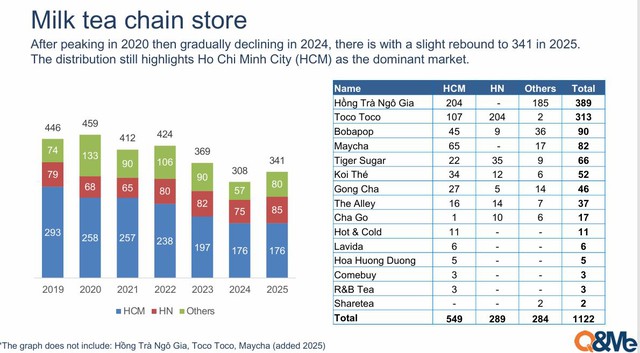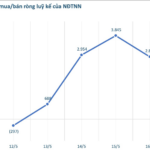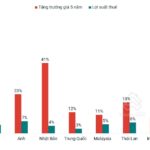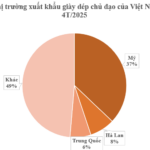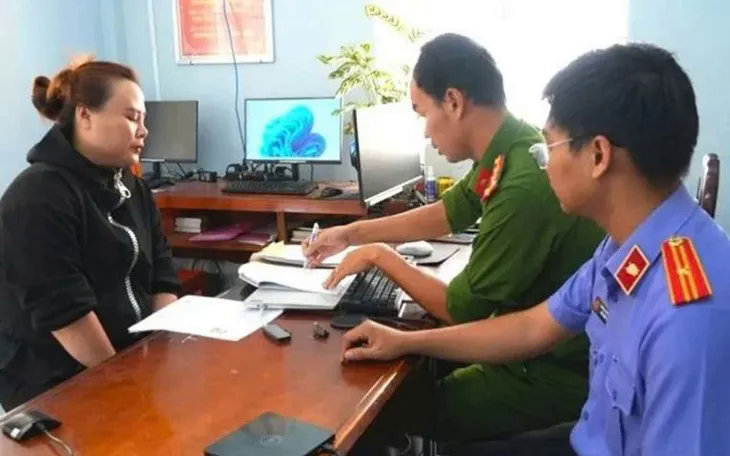Market Consolidation is Underway
Vietnam’s booming bubble tea market is entering a noticeable phase of consolidation and restructuring. After a period of rapid growth, the industry is undergoing a correction.
Data from Q&Me reveals that the number of bubble tea chain stores peaked in 2020 at 459, but has since declined, hitting a low of 308 stores in 2024.
Interestingly, there was a slight recovery in 2025, with the number of stores rising to 341, indicating a stabilization of the market after a period of adjustment.
Hồng Trà Ngô Gia and Toco Toco are dominating the market with a significant number of stores. Hồng Trà Ngô Gia has a total of 389 outlets (204 in Ho Chi Minh City and 185 in other provinces), while Toco Toco boasts 313 stores, with a strong presence in Hanoi, counting 204 outlets.
On the other hand, foreign brands such as Gong Cha (46 stores), The Alley (37 stores), Tiger Sugar (66 stores), and Koi Thé (52 stores) maintain a more modest presence, targeting the mid-to-high-end segment.
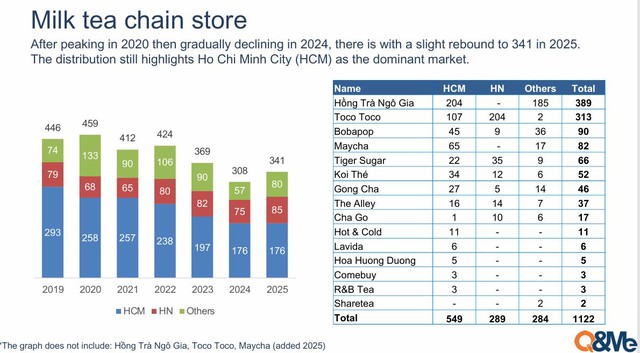
In terms of geographical distribution, Ho Chi Minh City remains the largest market for bubble tea chains, accounting for nearly half of the total number of stores from 2019 to 2025. As of 2025, Ho Chi Minh City has 176 stores, double that of Hanoi (85 stores) and higher than other regions (80 stores).
This reflects the dynamic consumption habits and high youth population in Ho Chi Minh City, which are driving factors for the F&B industry in general and bubble tea in particular. However, the gap between Ho Chi Minh City and Hanoi is narrowing when looking at year-by-year data, indicating potential growth in the northern market.
A Surprising Contender Rises
Hồng Trà Ngô Gia, despite not having a prominent media presence like Gong Cha or KOI Thé, has an extremely large footprint in the Vietnamese market, especially in Ho Chi Minh City and surrounding provinces.
Instead of investing heavily in advertising or building a strong brand image on social media, Hồng Trà Ngô Gia has taken a “silent conquest” approach. Their rapid expansion and physical presence have made the brand easily recognizable to consumers.
The brand operates with a simple and low-cost franchise model. The “small shop, quick service” model appeals to small business owners who want a quick return on investment.
According to their website, the initial investment cost for a Hồng Trà Ngô Gia franchise is estimated at VND 500 million (including basic equipment, franchise fees, deposits, advertising, first-time orders, rental space, and other costs)…
This franchise fee is considered lower compared to many international bubble tea brands in Vietnam. This has allowed the brand to quickly expand into residential areas, outskirts, and small towns, where the presence of premium brands is limited due to higher rental and operational costs.
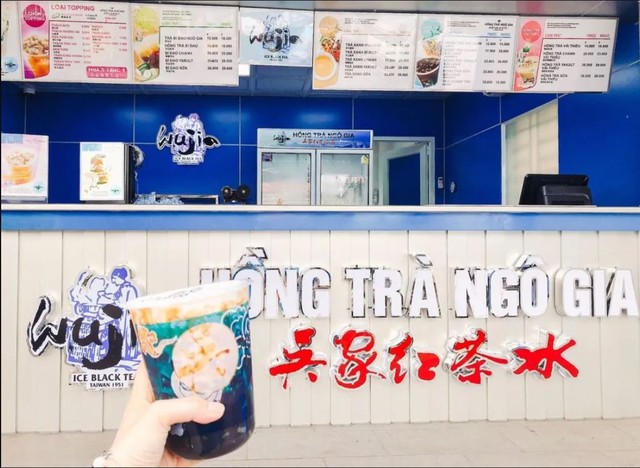
Unlike premium chains that focus on experience, Hồng Trà Ngô Gia positions its products as “delicious, affordable, and fast.” The brand pursues a “democratization” strategy for bubble tea: a simple menu, prices ranging from VND 25,000 to 35,000, and a focus on basic bubble tea options like hong tra sua and tra xanh sua, with popular toppings such as boba or pudding.
This strategy targets students, young workers, and blue-collar workers who are price-sensitive but represent a significant consumption segment.
It’s evident that since the pandemic, Vietnam’s bubble tea market has seen the closure of many small brands or those lacking long-term strategies. Specifically, the number of stores decreased from 459 in 2020 to 308 in 2024, a decline of nearly 33% according to Q&Me.
In addition to the pandemic, high rental costs, intense competition, and shifting consumer tastes are contributing factors. According to research by iPOS.vn, the VND 21,000-35,000 price segment has the highest proportion, with 37.7% of respondents saying they drink it daily and 40.6% drinking it regularly. iPOS suggests that this reflects a strong shift towards affordable beverage options, favoring traditional coffee shops, popular bubble tea brands, and takeaway models.
As such, the bubble tea market is no longer just about the number of stores but has entered a phase of optimizing operations, personalizing experiences, and creating unique brand identities.
The New Era of Trade: Vietnam-US Negotiations for a Reciprocal Trade Agreement
The two parties have reached a strong consensus on principles, approaches, content orientation, and negotiation plans. This lays a solid foundation for future negotiation sessions to yield positive outcomes.

